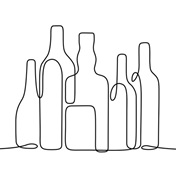Opening more neighbourhood pubs and liquor stores could lead to more violence in local residents' homes, hints a new Australian study.
Evidence is building that increased availability of alcohol can result in greater public violence, lead researcher Michael Livingston of the Turning Point Alcohol and Drug Centre, in Fitzroy, Victoria, told.
"If a similar relationship existed for domestic violence then governments would be able to consider these effects when developing alcohol policies," he said.
The study
Nearly one in four women and 7% of men have been physically assaulted by a current or former spouse, domestic partner or date according to a 1990s study in the US.
Similar numbers are estimated for Australia, where 15% of women over the age of 15 have experienced violence by a current or former partner.
To see if access to wine, beer and liquor may influence rates of violence in the home, Livingston identified 186 neighbourhoods of 10,000 people or more around Melbourne, Australia. Then he monitored changes in the numbers of alcohol purveyors and police-recorded cases of domestic violence between 1996 and 2005, a period in which a great number of new liquor licenses were granted.
Overall, the neighbourhoods averaged about five domestic violence incidents annually per 1,000 people.
Extent of poverty linked to shebeens density
After accounting for the extent of poverty in each neighbourhood, Livingston found that this level of violence did, in fact, depend on the density of outlets selling alcohol.
Rates were about 6% higher per 1,000 residents for each additional hotel or pub that allowed the sale of alcohol for both on- and off-premise consumption, he reported in Addiction.
For outlets that only sold alcohol for drinking on site, such as cafes, bars and nightclubs, the increase was 2%.
Most strikingly, adding one liquor store per 1,000 residents in a neighbourhood was linked to a nearly 30% increase in the rate of local domestic violence per 1,000 residents
The findings
This figure may not be surprising, suggested Livingston, as alcohol purchased from a liquor store is very likely to be consumed at home, where it could lead to heavy intoxication and subsequent aggression.
"Increasing the availability of alcohol carries with it a range of costs that need to be balanced against the benefits of competition and consumer convenience," he said.
Still, Livingston said, it's uncertain whether more opportunities to buy alcohol really spark more domestic violence. It might be that proliferating alcohol outlets and growing violence both reflect some other changing aspect of the area.
However, he noted that the findings do "provide good evidence of a causal link," especially since they held true regardless of a neighbourhood’s poverty level - the major known risk factor for violence in the home.
"The focus of most alcohol policy in Victoria in recent years has been violence in late-night entertainment precincts," said Livingston. "This work suggests that this focus ignores significant, but less visible, harms in the community," he added. (Reuters Health/December 2010)
Read more:
Domestic scars tell stories
DA proposes measures to curb domestic violence
6 tactics used to control women




 Publications
Publications
 Partners
Partners














